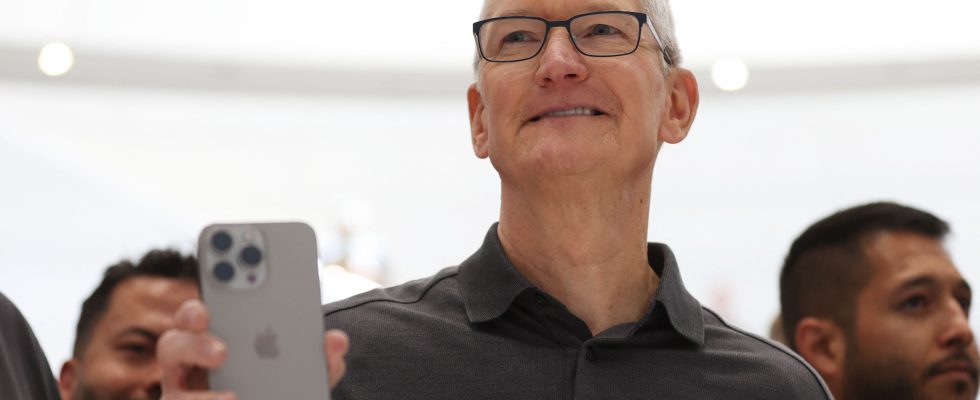Despite the passage of time and the disappearance of its visionary founder Steve Jobs, Apple’s presentation of its flagship product has remained, since 2007, the tech event of the year. The one that millions of fans of the Apple brand approach with a host of innocent questions in mind: what new buttons will appear or disappear from the case? Will the latter feature new trendy colors? Will the screen be bigger? The best quality camera? The iPhone 15, presented Tuesday September 12, features another type of novelty, less exciting at first glance: its connectivity has changed.
Goodbye Lightning, hello USB-C, a cable which is not more efficient but which has the merit of being standardized. Despite its reluctance, Apple had no choice but to comply. The European Union in fact adopted a text last fall requiring the transition to this single connection. A year ahead of its implementation, Apple adopted USB-C on its iPhones sold throughout the world. Europe thus wishes to stem the ever-increasing increase in electronic waste. Clearing the jungle of chargers is a first step which does not only concern the Cupertino company. But the impact is significant for her: Apple sold nearly 230 million iPhones last year.
This first measure, acquired through a hard struggle, is above all one of the symbols of the new regulation imposed on the digital giants who dominate the Old Continent. This patiently follows its course. A few days before the presentation of its new devices equipped with USB-C, Apple also learned of its designation as “access controllers” within the framework of the Digital Markets Act. The iPhones which will be released in a year could, therefore, display other profound transformations such as a transfigured iOS operating system with an application store – the AppStore – open to competition, and messaging that has become compatible with many others, two crucial points of this European legislation.
The story speeds up
Tuesday evening, politics was again in Apple’s garden. The French Minister of Digital, Jean-Noël Barrot, interfered with the group’s “keynote” by threatening to recall all iPhone 12s sold in France, a model whose level of wave emission would be very slightly higher than the imposed standard by ANFR, the National Frequency Agency. A message well relayed in the media, even though the minister himself recognizes that this excess poses no health danger. And that the company will be able to resolve the problem via a minor update.
Apple is now used to seeing politics influence its daily life. Covid-19 and the trade war between the United States and China have already forced it to rethink its production circuit. The growing rivalry between the two powers threatens its activities in China. As announced by Wall Street Journal, also this week, Apple devices will be banned from the phones of local officials. This information, however, was denied by Beijing this Wednesday, September 13, although this does not exclude the possibility that oral instructions could have been given to this effect, as is sometimes customary in China.
Pushed to its limits by a host of American sanctions, the former challenger Huawei has also come back in force in recent days with its Mate 60 range, which features an advanced technical electronic chip model. A snub to the restrictions that have hit the company since 2019. Chinese competition is rebuilding locally and the Communist Party will undoubtedly provide it with all its support. Apple continues to find itself torn between three blocs, the United States, China and Europe, which are asserting themselves and confronting each other through its flagship smartphone.
